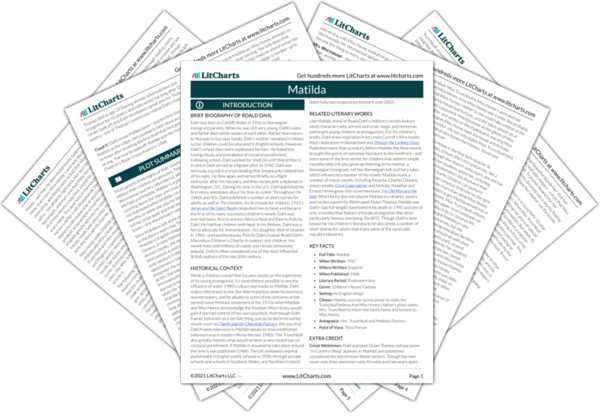Mrs. Phelps has been watching
Matilda for weeks. Now, as she sees Matilda perusing the shelves, she offers to help Matilda. Matilda says she doesn’t know what to read next, since she’s read—and actually read, not just looked at the pictures—all the children’s books. She enjoyed
The Secret Garden the most. Mrs. Phelps is stunned, especially when Matilda admits she’s only four years and three months old. Hiding her shock, she considers Matilda’s request for a “famous,” “grown-up” book. Passing by the romances for teenagers, Mrs. Phelps offers Matilda
Great Expectations by Charles Dickens.
